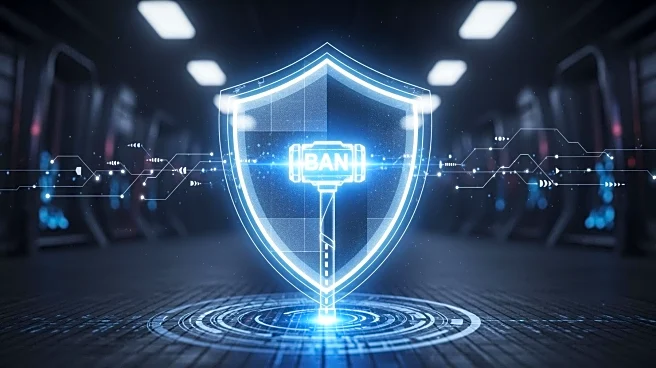What's Happening?
Krafton India has published its anti-cheat report for Battlegrounds Mobile India (BGMI) for September 2025. The report details the banning of 408,992 accounts due to cheating activities. Additionally, 1,912 pieces of online cheating content were removed.
The most prevalent cheat detected was auto-aim hacks, accounting for 14.1% of the banned accounts, followed by wall hacks at 12.8%. Other cheats included speed hacks and modification of area damage. The report also provides insights into the ranks of cheaters, with the highest percentage found at the Ace rank (24%), followed by Bronze (16.6%) and Platinum (14.2%). Krafton India has enhanced its reporting and player support systems, offering players confirmation messages when combat-time reports are successfully submitted.
Why It's Important?
The release of this anti-cheat report is significant as it underscores Krafton India's commitment to maintaining fair play within BGMI, a popular mobile game. By identifying and banning cheaters, Krafton aims to enhance the gaming experience for legitimate players, thereby preserving the integrity of the game. This action could positively impact player retention and satisfaction, as fair play is a critical component of competitive gaming. The report also highlights the ongoing challenges faced by game developers in combating cheating, which can undermine the competitive nature of esports and affect the game's reputation.
What's Next?
Krafton India is likely to continue its efforts in monitoring and eliminating cheating within BGMI. Future reports may provide further insights into the effectiveness of their anti-cheat measures and any new strategies implemented to combat cheating. The gaming community and esports stakeholders will be watching closely to see how these measures impact the overall gaming environment and player engagement. Additionally, Krafton may explore collaborations with other entities to enhance their anti-cheat technologies and strategies.
Beyond the Headlines
The issue of cheating in online games raises broader ethical and legal questions about digital conduct and the responsibilities of game developers. As gaming becomes increasingly competitive and lucrative, the pressure to cheat can grow, prompting developers to invest heavily in anti-cheat technologies. This development may also influence the regulatory landscape, as authorities consider the implications of cheating on consumer rights and digital fairness.















